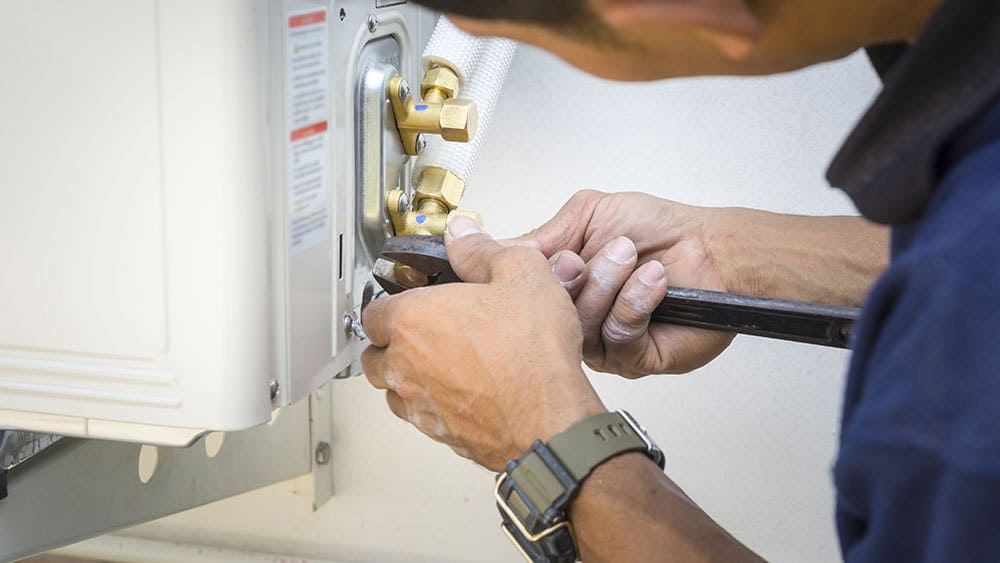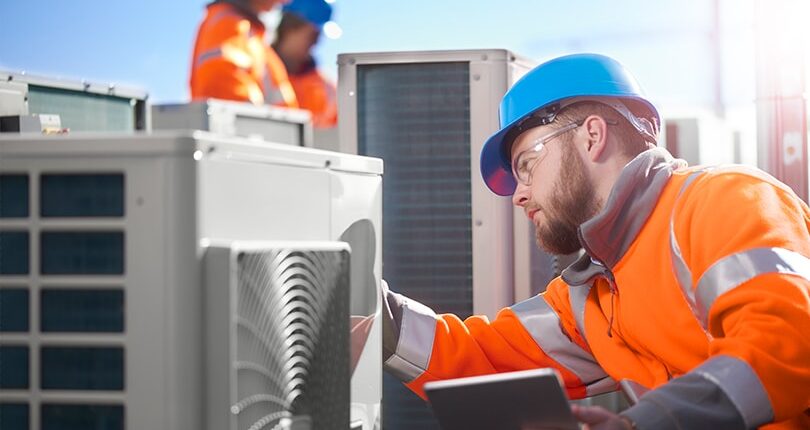Keeping your HVAC system in top condition is a great way to save money on monthly energy bills, and to stave off the high costs of repairing or replacing the system, or having to call your HVAC company.
HVAC Maintenance Tips

Keep the area clutter-free for healthy systems
Seasonal HVAC maintenance should also include keeping the area around HVAC units clear both indoors and outdoors. That means there should be no build-up of debris, dirt, grass or leaves. According to the Department of Energy, you should leave at least two feet of space around outdoor HVAC units to ensure they operate efficiently.
Change the Filters of HVAC System
Filters remove dust, hair and other particles from the air so that these pollutants are not spread throughout the home. You can improve the air quality inside of your home and use less energy by changing the HVAC filter every 30 days. Clean filters let more air pass through, allowing the system to heat and cool more efficiently. For most systems, filters with a MERV rating between seven and 13 offer an excellent balance between filtration ability and maximum airflow.
Schedule regular maintenance checks

Like any other piece of machinery, your HVAC system needs regular maintenance to keep it running smoothly. A qualified technician can check for any potential problems and make necessary repairs. Many HVAC companies offer service contracts that include regular maintenance checks.
Skipping these checks can lead to more significant issues and expensive repairs. Note that you may not detect some problems, but professionals will. Some things the expert will do during a routine maintenance check are:
- Check the thermostat to make sure it’s working properly
- Clean or replace filters
- Lubricate moving parts
- Check the refrigerant level
- Listen for unusual noises
- Inspect the condenser and coils
Eliminate Clutter Around the Indoor HVAC Unit
Keeping the area around your indoor HVAC unit clear improves air quality and safety. The more stuff you have sitting around, the more surface area there is to collect dust that will eventually make its way into the vent system. Clutter also reduces air circulation in the immediate area, which is bad for system efficiency. Plus, clutter can become both a fire hazard and a trip hazard, and make it harder to perform repairs and maintenance.


